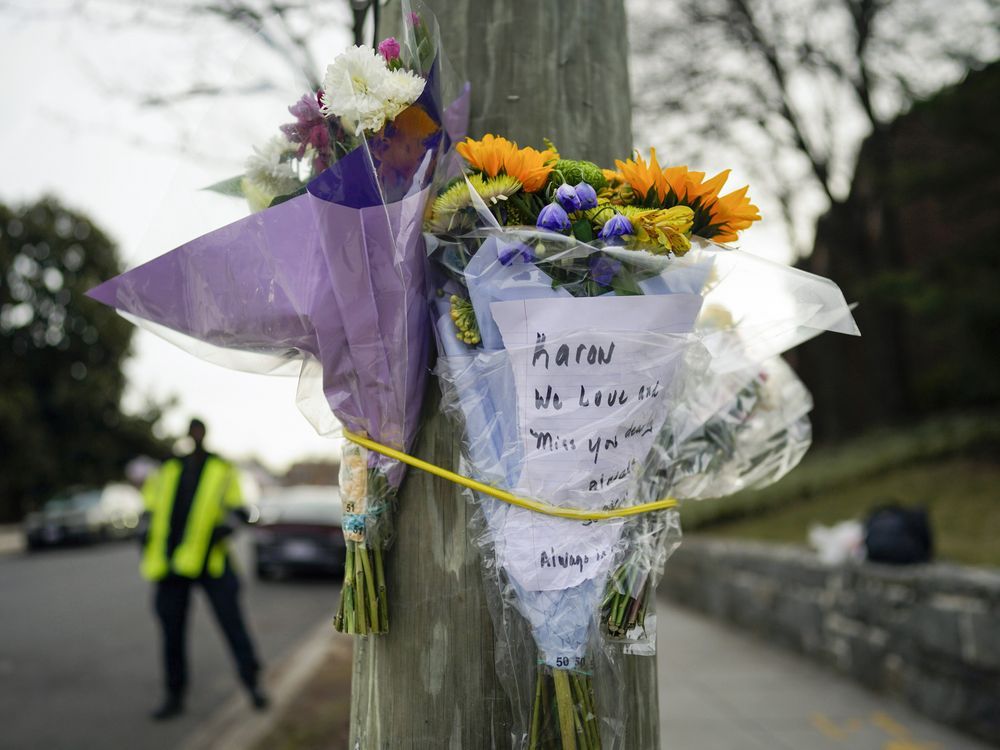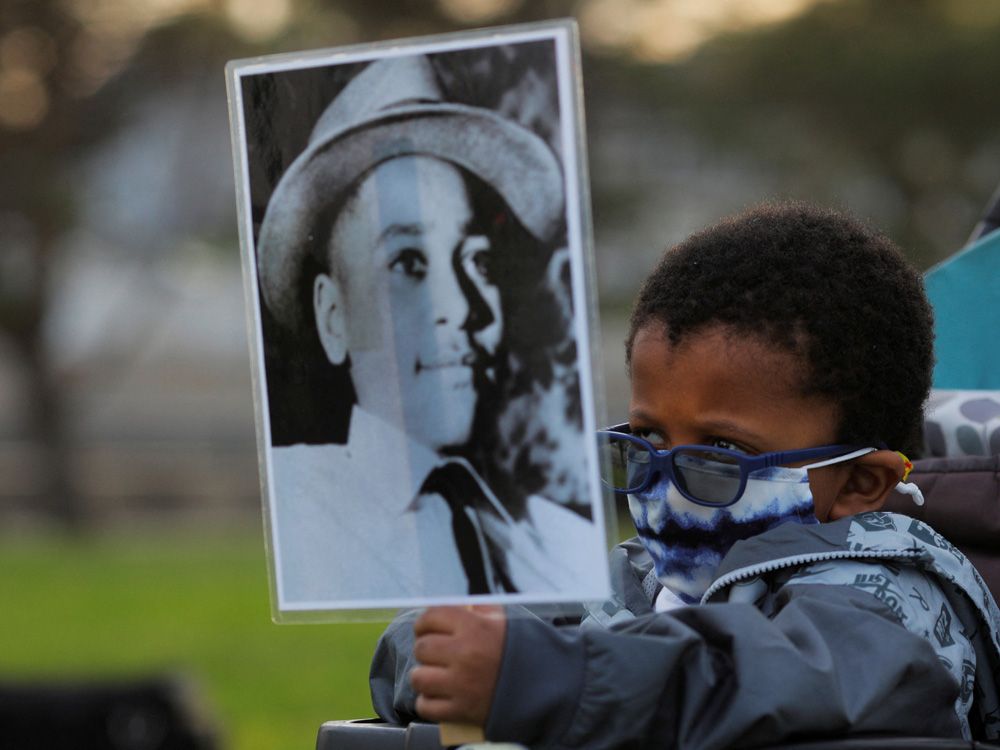Suspect in power grid plot embraced racist ideology, family says
Author of the article:Associated Press
Associated Press
Lea Skene
Published Feb 09, 2023 • 5 minute read
NORTH EAST, Md. — A woman accused of plotting an attack on Baltimore’s power grid wanted to draw attention to the white supremacist ideology she embraced during years spent in prison, where she acquired a Swastika tattoo and increasingly radical, racist views, family said.
Sarah Beth Clendaniel, who believed her days were numbered because of serious health conditions, allegedly conspired with a Florida-based neo-Nazi leader, planning to shoot out several electrical substations around Baltimore and create chaos in the majority-Black city.
“She’s going out with a bang,” her nephew Daniel Clites told The Associated Press.
Clendaniel’s recent arrest thwarted the planned attack, but the case has garnered national attention as authorities say the American power grid could become a vulnerable target for domestic terrorists.
In announcing charges against Clendaniel and her co-defendant earlier this week, federal authorities referenced “hate-fueled violence” but declined to specify how the suspects sought to fulfill a racist motive. Recent comments from Clendaniel’s relatives provide more insight.
“She would have no problem saying she’s racist,” Clites said. “She wanted to bring attention to her cause.”
Clites said he disagreed with her extremist views, as did her mother, Lanette Clendaniel. They said her descent into neo-Naziism occurred against a backdrop of mental health issues and drug addiction that sometimes landed her in prison.
“I knew what she believed, and she knew what I believed,” said Lanette, who’s raising two of Clendaniel’s children. “There was nothing I could do.”
She said arguing with her daughter was useless. “But my philosophy is that we all live on this planet, so we better get along,” she added.
Clendaniel befriended other white supremacists over the years — including her co-defendant Brandon Russell, who helped establish Atomwaffen Division, an obscure neo-Nazi group based in Florida. The group’s mission is civilizational collapse, according to the Southern Poverty Law Center.
Together, they were planning to target five electrical substations situated in a ring around Baltimore, according to prosecutors. Both have been charged with conspiracy to destroy an energy facility.
Since her arrest last week, Clendaniel, 34, expects to die behind bars because her health is failing, according to her mother and nephew.
She allegedly told an FBI informant she wanted to “accomplish something worthwhile” before her death. In a document investigators compared to a manifesto, which mentioned Hitler and other terrorists, Clendaniel wrote she would give up “everything” to create “a chance for our cause to succeed,” according to a criminal complaint unsealed earlier this week.
“It would probably permanently completely lay this city to waste,” she told the informant, according to prosecutors.
A Maryland public defender assigned to her case didn’t immediately respond to a request for comment Thursday.
Before her latest arrest, Clendaniel was living in suburban Baltimore County, where she remained under parole supervision from a 2016 robbery case. She recently visited her mother and other relatives, including her children.
Lanette and Clites spoke during an interview Wednesday at their home in Cecil County where Clendenial grew up.
An overwhelmingly white, conservative enclave in the northeast corner of Maryland bordering both Delaware and Pennsylvania, Cecil County sits about an hour outside Baltimore. The area has a history of Ku Klux Klan activity, even in recent decades.
In 2013, local officials allowed a local KKK group to meet inside a county administration building, according to an AP report. And in 1992, local Klan members were met with angry protesters when they held a Fourth of July recruitment drive at a nearby coastal city.
Clites said Clendaniel would mock KKK members for being “dumb racists.”
After losing her father, a railroad worker who died in a car crash in 1999, Clendaniel struggled with trauma and spent much of her adolescence in institutions, including psychiatric placements and alternative schools, Lanette said.
As a teenager, Clendaniel was arrested for robbing a Cecil County convenience store with a butcher knife. Arresting officers noted “track marks, cuts and infections” on both her arms. She was pregnant at the time, and her attorney said she was receiving methadone treatment, according to The Cecil Whig.
She gave birth to her first child behind bars.
“The prison system is just a revolving door, just another fallen system,” Lanette said. “There’s no real help” for people facing addiction.
Sometime after her release in 2008, Clendaniel moved to Iowa. There, she dated a man with substance abuse issues and white supremacist connections, court records show. He later landed in federal prison and Clendaniel returned to Maryland.
In 2016, she was arrested at the same convenience store in her hometown, this time for brandishing a machete and demanding cash. Police said she had a crack pipe, hypodermic needles and various pills in her possession. She later pleaded guilty to robbery and was sentenced to nine years in prison.
Meanwhile, Russell was arrested in 2017 after Florida law enforcement officers responded to a double homicide involving his roommates and discovered bomb-making materials in the garage. A third roommate confessed to the killings, saying he wanted to prevent a planned terrorist attack targeting U.S. infrastructure. He said Russell, who was then serving in the Florida National Guard, knew nothing about the killings. Russell pleaded guilty to explosives charges.
An attorney representing Russell didn’t immediately respond to a request for comment Thursday.
Sometime in 2018, while Clendaniel and Russell were incarcerated in separate prisons, they struck up a correspondence, according to federal investigators.
Officials declined to define the relationship or detail how they got in touch, but the criminal complaint says they discussed having kids together. Text messages linked to Russell included a statement that “going to prison was worth it because I might not have met you otherwise.”
Clendaniel had recently mentioned Russell, but gave no indication they were plotting an attack, her mother said. She also mentioned recent power grid attacks in other states.
Lanette said she’s been too busy raising her grandchildren to worry much about her daughter’s personal life and increasingly radical views.
Despite their contrasting ideologies, they found common ground in supporting Donald Trump and his anti-establishment politics.
Since her daughter’s arrest last week, Lanette said she’s leaned heavily into her Christian faith.
“The Lord has a plan for each and every one of us,” she said. “I’m just taking one day at a time.”
A woman accused of plotting an attack on Baltimore's power grid wanted to draw attention to the white supremacist ideology

torontosun.com

 mediabiasfactcheck.com
mediabiasfactcheck.com

![Black-History-Chloe-Cooley-Stamp-400P[1].jpg Black-History-Chloe-Cooley-Stamp-400P[1].jpg](https://forums.canadiancontent.net/data/attachments/15/15421-3d90bbd5fa4f69e78d3e82bf61b9ed67.jpg)











